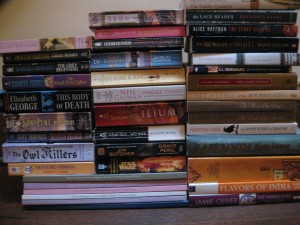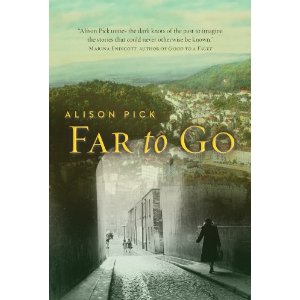(Oh dear, the google hits on this blog are about to get really thrilling with that title!)
A staple of contemporary historical fiction is the novel about the famous man or woman, and a staple of those novels is some speculation about said famous person’s love life. Why not? That’s exactly the kind of information the academic historian is in a poor position to discuss, and it allows the author to reveal the personal, emotional side of a character, which is the reason many come to historical fiction.
But how far can you go? How far should you go? One answer to that question is that you can write whatever you like and speculate as much as you want as long as you do it well. But what if, as an author, you really want to stay close to historical fact, or at least plausible legend and contemporary rumour? The fact is, we can’t prove who loved whom in the past about anyone. We can’t even prove who was whose father if we go too deep in time.
There is a good deal of discussion about this question out there on the intertubes. Susan Higginbotham has been fighting the good fight to save Margaret of Anjou’s reputation. Kathryn Warner is fighting the good fight over on her blog to defend Edward II against the most outrageous attacks. And a really interesting discussion over on Historical Fiction Online about who Alison Weir’s recent Captive Queen and who Eleanor of Aquitaine may or may not have slept with is what started my interest in this whole thing. I can’t speak to most of the rumours used by Weir in her book because they cover Eleanor’s later career and I just don’t know enough about the sources. But in a future post (soon!) I want to discuss the original charge against Eleanor, that she had an affair with her uncle while on the Second Crusade. Today, I want to talk in a general way about how an author might deal with what counts as evidence about a medieval person’s romantic dalliances. An author is of course free to do what he or she likes, as long as it works. But what can an author use, and still claim that she or he is following history?
Rumours that emerge after, say, 1500 are extremely suspect. They usually come from academic circles, not really the best places for buried oral tradition to surface. Stories that are contemporary with a given person’s life are obviously the most deserving of credence. But that doesn’t mean they are true. Historians in the Middle Ages didn’t write because they wanted to get the facts down, and we make a mistake when we treat their works as simple unfiltred repositories of information. The wrote to make an argument and they used standard tropes and moral lessons, one of which was the wayward queen whose lust/greed/jealousy brought down the kingdom. So ideally we will have more than one piece of independent evidence that will confirm what we say.
But, to argue for the other side for a moment, how often do we have more than one piece of evidence about anything that happened in the Middle Ages? Often the chronicler who is the only one to tell us the queen was a bit naughty, is also the only one to tell us exactly what went wrong at the battle of Damascus. Does it make sense to dismiss the rumour, while taking the Damascus account unquestioningly as gospel truth? Not really. We must constantly ask why our sources write down everything they tell us , whose agenda did it serve, how the different stories support each other, and how credible we find their tales. Well, this is why writing history, fictional or non-, is difficult. But also why it is fun!
Next post: Eleanor and her uncle as a case study of how to read our sources.


